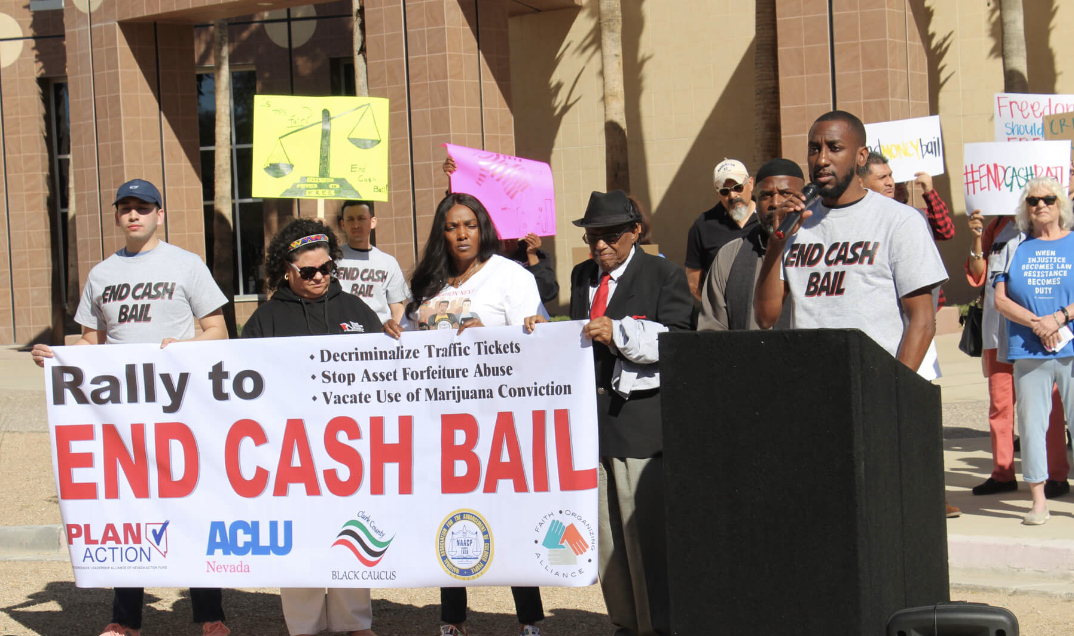Cash Bail Reform
Many states have started to reform cash bail systems after realizing the impacts and inequities of systems that target communities who are unable to afford their bail. When cash bails are set, they often set forth a monetary requirement that is not feasible for low-class defendants.

-

Illinois
When the Safety, Accountability, Fairness, and Equity-Today (SAFE-T) Act went into effect in 2023, Illinois became the first state to abolish cash bail as a condition of pretrial release. The new law removed monetary bail and established a default clause that states that all individuals accused of a crime “shall be eligible for pretrial release.” However, a defendant who has been charged with an enumerated offense or any felony other than a Class 4 offense may qualify for a detained pretrial. The SAFE-T Act asserts that monetary bail is not the only method to incentivize criminal defendants to appear for trials or to “protect” the public. It is interesting to note that opponents of the SAFE-T Act, have misled citizens to believe that once the law is implemented, every arrested person will be “released pretrial without any means of accountability.” Such campaigns have spread fear amongst the Illinois community, distracting them from the flaws of the cash bail system.
-

Alaska
On January 1, 2018, Alaska joined a growing national trend in favor of bail reform when it enacted a new law that eliminates money bail for most defendants. This decision to enforce the new system was induced by research that found that cash bail directly correlated with dramatic increases in the state’s prison population, which piqued between 2005 and 2014. In replacement of the traditional cash bail system, the new system uses a “risk assessment tool” to evaluate the risk that a defendant will miss a court date or commit more crimes. Judges are required to release those charged of nonviolent misdemeanors and it is presumed by the new law that the majority of people will be released without posting bail. Judges are only able to set secured bail bonds for those charged with violent offenses who have high-risk scores.
-

New York
In 2019, New York ended the use of money bail and jail for most cases involving misdemeanors and lower-level felonies. The goal of the law, which went into effect in January 2020, was to make release the default, rather than detention in lower-level felonies. The law has undergone three rounds of revisions as a result of politicized worries about increased crime during the COVID-19 pandemic. Currently, it contains multiple exceptions that permit judges to set bail in certain cases involving less serious offenses. A primary aspect of the new law is that criminal charges must first be divided into qualifying and non-qualifying offenses. Aggravated assault and most other violent crimes qualify as qualifying offenses. Judges have the authority to set bail in cases where a defendant is accused of this kind of offense, provided that they reach an "individualized determination" that the defendant's return to court is "necessary to reasonably assure.”
-

California
The movement towards a zero bail policy in Los Angeles was promoted by Judge Lawrence Riff’s decision that enforcing cash bail against those who can’t afford it is a “clear, pervasive, and serious constitutional violation.” In addition, in most California regions, people are automatically held in jail during the period between arrest and arraignment. Moreover, those who apply for bail pre-arraignment often can’t afford the cost; at least 33 people died in L.A. county jails in 2023. As a result, in 2023, the county of Los Angeles, California determined that defendants accused of misdemeanor and nonviolent felony offenses are no longer required to pay for bail, thereby reinstating the zero bail policy for such crimes. However, this new policy does not apply to charges based on sexual offenses, domestic violence, and offenses involving weapons.